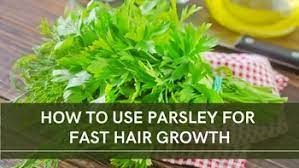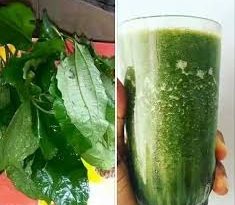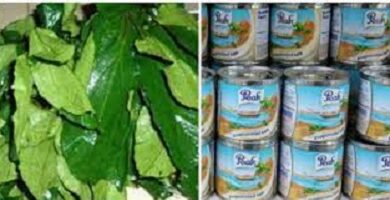Parsley for Hair Growth: 3 Simple Ways to Use
Parsley for Hair Growth: 3 Simple Ways to Use

Being green means being healthy, and this is true of herbs as well.
Parsley is one of the green herbs that not only flavor your food but also provide you with several health benefits.
Particularly in terms of beauty, because parsley is high in nutrients that are beneficial to your hair and skin
Parsley for Hair Growth
Parsley is a popular plant used in many European, Indian, and Greek dishes due to its great flavor and health advantages.
It is native to the Mediterranean region of southern Italy, Tunisia, and Algeria.
What is parsley?
Parsley is one of the world’s most popular and well-known herbs.
The distinct aroma and flavor will enhance the flavor of your cuisine, while the nutrients will help you maintain a healthy lifestyle.
However, many people confuse parsley with celery, even though the two herbs are related but parsley is not the same as celery.
Instead of vegetables, parsley is classified as a herb and belongs to the Apiaceae family of flowering plants.
Its scientific name is Petroselinum crispum, and its Greek name is ‘rock celery.’
How to Use Parsley for Hair Growth and Healthy Skin
In our kitchen, parsley is a common component. We primarily use it as a seasoning agent or to decorate soups and salads.
Parsley, on the other hand, has numerous health and beauty benefits.
Parsley is one of the most widely used herbs in the world and is high in vitamins and other minerals.
Nutritional value of Parsley
Vitamins A, C, E, and K, as well as minerals, are abundant in parsley.
Likewise niacin, folate, pantothenic acid, vitamin B6, vitamin B12, choline, iron, calcium, magnesium, etc.
Surprisingly, two tablespoons of parsley can provide 12 percent of our daily vitamin A, 150 percent of Vitamin K, and 16 percent of our daily vitamin C needs.
It’s no surprise that parsley is referred to as a “superfood” by many people. Learn more about the health and beauty advantages of parsley.
While we think of parsley as a flavor enhancer, the addition of parsley to our diets has silently improved our hair health over time.
Apart from the advantages listed above, some of the major benefits of parsley for skin, hair, and health are:
- Inflammation is treated and reduced.
- Aids in cancer prevention.
- Keeps blood pressure under control
- Assists in the elimination of halitosis
- Bone health is improved.
- Keeps the heart in good shape.
- The body is detoxed
- Diabetes prevention
- Assists with arthritis symptoms
- Cholesterol levels are controlled
- Enhances the health of the ears and eyes
- Prevents acne from forming
Parsley for Hair Growth: Benefits of Parsley to Boost Healthy Hair
Parsley is quite beneficial to our health, especially when it comes to maintaining healthy and lustrous hair.
- Helps to Prevent Hair Loss: Parsley for Hair Growth
To decrease hair fall, parsley can be purchased as an essential oil or a hair tonic to rub into the scalp.
Parsley is a common home medicine that includes apigenin, an antioxidant that regulates the TGF-beta1 gene and helps to prevent hair fall and build thicker, stronger hair.
- Dandruff Treatment and Prevention: Parsley for Hair Growth
Dandruff can be treated and even prevented by washing your hair with a blend of parsley leaves in your natural shampoo or an infusion of parsley leaves.
The leaves will revitalize the scalp while also reducing irritation and dryness caused by dandruff.
- Helps to promote hair growth: Parsley for Hair Growth
If you’re seeking a natural way to grow your hair, parsley is the answer.
Apply a generous amount of parsley powdered seeds to your scalp and massage thoroughly.
Your scalp will be stimulated to promote hair growth, and benefits can be seen in as little as two months if used twice a week.
- Preserves the natural color of the hair: Parsley for Hair Growth
Parsley is high in copper, which helps to keep and maintain the natural color of the hair.
Adding high amounts of parsley to your diet or applying parsley topically will help you maintain your natural hair color.
Parsley Isn’t Just an Ingredient; it can also help your hair. The following are some of the amazing hair advantages of parsley
3 Simple Parsley Recipes: Easy Ways to Use Parsley for Hair and Skin
Parsley can also help the bones and immune system by providing nutritional advantages.
Parsley can also be used directly or indirectly in your hair regimen to encourage hair development and treat common hair problems, according to studies.
- Assists in the maintenance of natural hair color
Copper is abundant in parsley, which helps to keep the hair’s natural color.
It can be used topically or added to your diet in big quantities.
- Aids in the treatment of dandruff
Dandruff is a scalp ailment that causes skin flakes to emerge. Itching is frequently present.
To get rid of dandruff, wash your hair with a parsley leaf infusion.
- Encourages hair growth
Hair fall is a typical condition that both men and women experience when their hair becomes sparse as a result of balding, hair thinning, or a receding hairline.
Parsley is excellent for stimulating hair development.
To encourage hair development, gently massage your scalp with powdered parsley seeds.
To obtain long and straight hair, repeat this process twice a week for two months.
Side Effects of Parsley Leaves
Apart from the benefits parsley juice provides to your hair and skin, it also has health benefits for humans, such as fighting cancer and being good for your heart and bones.
However, there are specific circumstances induced by parsley’s opposite impact that you should be aware of.
- Those that are allergic to herbs such as celery may still experience an allergic reaction.
To stay on the safe side, avoiding parsley consumption or application to the skin is a great idea.
- Because parsley is designed to be ingested in small amounts, it is rather safe to consume regularly.
However, due to its high oxalic acid concentration, parsley can cause a mineral-nutrient shortage and gouty arthritis in high doses.
- Lastly, you should be aware of the sources of your parsley. Organic parsley is still the best option in this case, and growing them yourself could be a viable option for ensuring fresh parsley on your table every day.
FAQs
Does parsley make your hair grow?
Parsley conditions the hair and boosts collagen production, which is required for hair growth.
It increases blood circulation, which promotes hair growth. It also shields the hair from sun damage.
What is the best way to make parsley water for your hair?
In a pot, bring water to a boil over high heat. Boil the parsley leaves for 20 minutes in this water.
Blend this until it becomes a smooth paste. Apply this paste to your shampooed and clean hair in the same way that you would henna paste.
Is parsley water beneficial for hair?
Parsley is an excellent natural remedy for hair loss or hair fall.
It is high in vitamins and minerals, which can help our bodies, address nutritional deficiencies.
A lack of nutrition often causes hair fall
How to make parsley oil for hair growth ~ how to make fresh herb-infused oil:
- Firstly, prepare your jar and fill the jar to the top with herbs.
- Secondly, pour oil over the herbs slowly and then, cover the jar, give it a few shakes, and put it in a cool place inside your house
- After that, strain the oil into your storage bottles through a cloth-lined strainer
- Lastly, cork and label your bottles
How do you extract oil from herbs at home?
Steam distillation involves boiling herbs and plants until the essential oils separate and float on the water.
The oil can be collected from the water’s surface and stored in an amber or blue glass bottle.
What herbs promote the fastest hair growth?
- Rosemary. Now, this is one of the most common and popular herbs for hair growth.
- Aloe Vera. Aloe Vera gel is a boon when it comes to hair care or skincare
- Peppermint.
- Lavender.
- Horsetail.
- Burdock.
- Saw Palmetto.
- Ginseng.
Is parsley oil good for hair growth? Parsley oil for hair growth
Parsley oil promotes hair growth. How?
By, simply combining 2-3 drops of Parsley essential oil with a carrier oil and gently massaging into the scalp to promote hair growth.
However, be patient enough to see noticeable growth, and don’t be afraid to caress your long hair.
Parsley for skin lightening
Parsley juice can also help to reduce pigmentation scars and dark spots on the skin caused by aging or sun damage.
Extract juice, combine with honey and lemon juice, and dab on spots for twenty minutes before rinsing.
Does parsley make your hair darker? Can I drink parsley that has been boiled?
Parsley tea can be enjoyed plain or flavored with honey, lemon juice, or sugar.
Summary
Parsley tea is a soothing beverage that can be easily made with just boiling water and fresh or dried parsley.
What are the benefits of parsley oil?
Parsley contains antibacterial essential oils such as apiol and myristicin, which fight potentially harmful bacteria such as Staphylococcus aureus.
May benefit bone health.
Parsley contains vitamin K, potassium, magnesium, and calcium, all of which are important for bone health.
Is parsley good for wrinkle removal?
Parsley is high in Vitamin C, which the skin craves. Vitamin C promotes collagen production in the skin, which keeps it looking younger and reduces wrinkles and fine lines.
What happens if you consume parsley on a daily basis?
When taken as medicine, parsley is POSSIBLY SAFE for most adults. Parsley can cause allergic skin reactions in some people.
However, consuming large amounts of parsley is LIKELY UNSAFE and can result in other side effects such as anemia and liver or kidney problems.
What is the best way to make parsley tea at home?
- Firstly, fill a mug or small teapot halfway with parsley leaves.
- Then, pour a cup of boiling water over the fresh parsley leaves and toss to combine.
- After that, allow at least 5 minutes for the water and parsley to steep, or longer if you prefer a stronger cup of tea.
- Finally, strain the leaves from the tea, and discard them
Is parsley oil good for the skin?
Parsley Oil is antibacterial and antimicrobial oil that is frequently used in high-end skincare products due to its calming properties and ability to keep bacteria at bay – especially for acne-prone skin.
Its benefits include reducing cellulite, stretch marks, and bruises.


